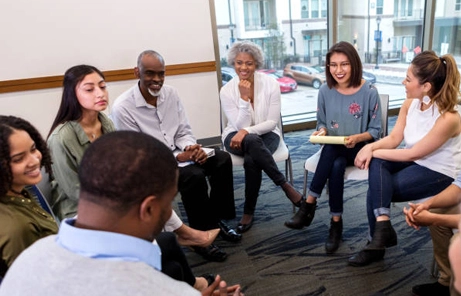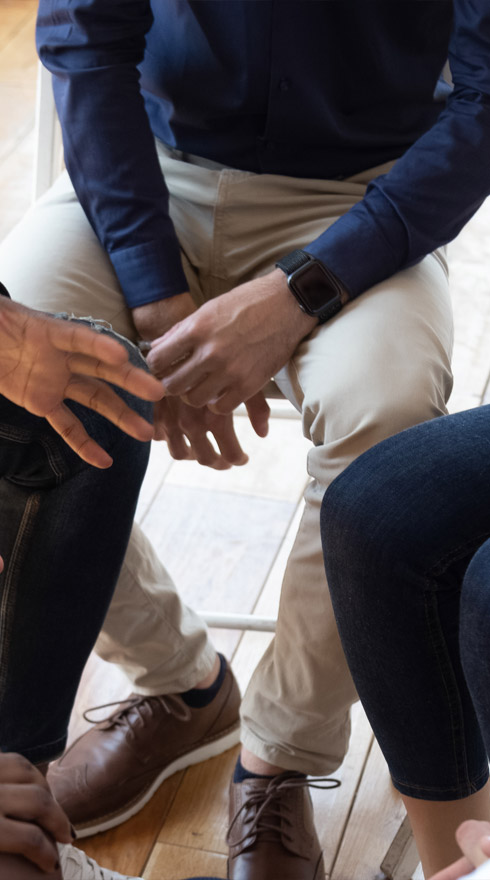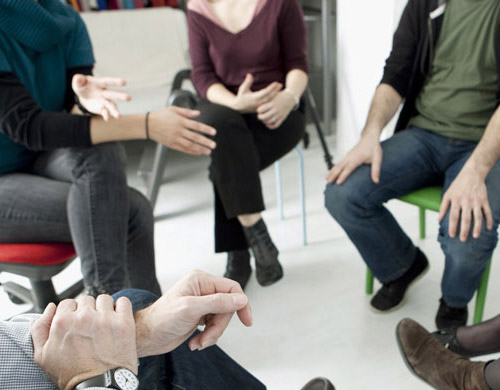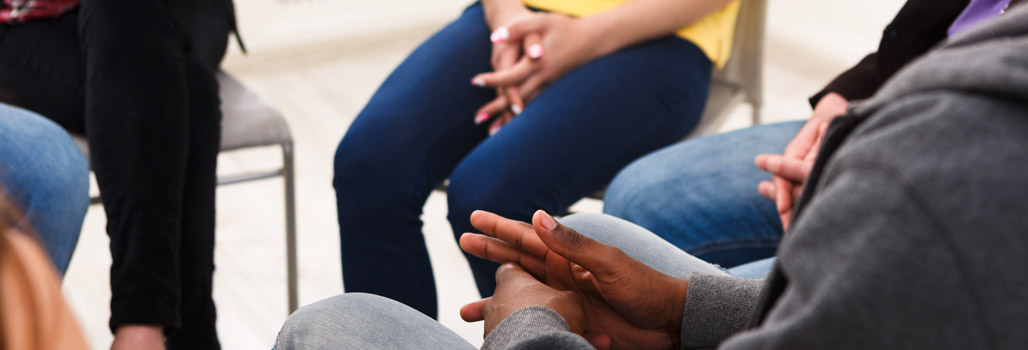If you or someone you care about is struggling with drug addiction or alcohol addiction, it may seem like everything feels so hopeless and you’re not sure where to go. Through proven rehabilitation strategies, drug and alcohol addiction can be managed for long-term recovery.
Discover more about how integrated addiction treatment can assist yourself or someone you love in starting and maintaining addiction recovery.
What is Addiction Rehab (Rehabilitation)?
Addiction ‘rehab’ is a holistic term that introduces both therapy and medical interventions to treat legal, illegal and recreational substance dependencies.
Rehab is most effective when it is tailored to your own needs involving a medically-managed detox, residential and outpatient programs, as well as aftercare support.

Facts & Statistics about Addiction in Imperial
Prevalence of Substance Use Disorder, by Drug Type
(IN THOUSANDS)
- 2,7578.5%Any Substance
- 2,0886.4%Alcohol
- 1,0683.3%Ilicit Drugs
- 2060.6%Pain Medication
Drug- and Alcohol-Induced Deaths by Age Group, California, 2016
- Alcohol-Induced
- Drug-Induced
- 18 to 250.5
- 9.6
- 26 to 354.3
- 13.9
- 36 to 6424.2
- 22.9
- 65+23.7
- 9.4
Drug Use, by Selected Type and Age Group California, 2015 to 2016
- 12 to 17
- 18 to 25
- 26+
- Marijuana*13.2%
- 34.0%
- 13.5%
- Misuse of Pain Medications3.5%
- 8.0%
- 4.3%
- Cocaine0.8%
- 7.2%
- 1.8%
- Heroin0%
- 0.4%
- 0.2%
What are the treatment options available in Imperial?
By integrating treatments, the primary causes of drug addiction can be addressed and treated. It is necessary to treat the symptoms of addiction, but coping strategies need to be considered, in order for you to deal with the issues that lead to the drug or alcohol dependency.

Private Residential Programs
Residential addiction treatment programs require you to live at the treatment facility and undergo your treatments on-site. One of the key benefits is having daily treatment and care. By moving out of your home environment and into a rehab center, you will protect yourself from any obvious triggers that contributed to you developing a substance dependency.
Completing your treatment program and avoiding relapse is far easier when you remain in a secure and controlled environment. If you have a severe substance dependency, or if you suffer from a dual diagnosis or co-occurring disorder, a residential treatment program is advised.
Enrolling in a residential rehab program is the most effective way to treat addiction, and maintaining it will require persistent focus because addiction recovery is hard during the first year. Once you have completed your residential addiction treatment, you must consider what you want from your new life, as you work towards becoming more independent.
Do You Need Help?
Our addiction advisers are here to help you.

Sober Living Programs
Sober living programs are designed with the necessary support to help people in recovery get what they need from new life in recovery. They assist you through:
- A house manager to check in on you every day
- Setting the boundaries for positive behavior in recovery
- Getting support and companionship from other individuals who share similar challenges
Outpatient Programs
The flexible approach to outpatient programs means that you do not have to stop work commitments or family commitments, as you can attend the rehabilitation center and have regular treatments at your own pace.
Outpatient programs assist you with:
- Education around substance misuse
- Counseling and talking therapies through group interventions and one-to-one sessions with a skilled addiction therapist. – Outpatient programs typically run from three months to a year, and your personal needs will determine how long yours lasts for.
Detox Only Programs
The early steps of a treatment program is a detox, which eliminates any substances from your body and begins healing your dependency on it. As your body becomes accustomed to not the substance it was dependent on, withdrawal symptoms usually occur.
The withdrawal process marks the beginning of the rehabilitation process, and must be followed up by addressing the root reasons for your addictive behavior, to prevent the same pattern of behaviors. A lot of drugs result in protracted cravings and withdrawal symptoms after you have completed detox. You can lessen the chances of relapse by building coping strategies for long-term recovery success.
Paying for Private Treatment
If you decide to enroll for private rehab, you will need to cover the costs or make a claim via your health insurance provider. Many insurance companies will cover at least some of the costs of treatment, including medical detox, a treatment program, and any interventions you may need. Your provider’s terms and conditions will provide details on the amount of cover you can claim for.
We suggest that you find out how much cover you are entitled to before enrolling in a program. To find out what you could be entitled to, go to our Verify Your Insurance page.
If you do not make a claim against your policy you must pay for your treatment programme. Many treatment centers are willing to extend payment options to clients who may find paying upfront for treatment a challenge.
State Funded Programs
If you are struggling with substance or alcohol use disorder and little to no financial means to fund private rehab, you might be qualified for a state-funded addiction rehabilitation program.
Using funds from a combination of state, federal and Medicaid budgets, state-funded treatment programs remove hurdles to treatment by offering:
- Medically-supervised detox
- Rehab treatment and relapse prevention services.
State-funded rehab programs offer support to people who reside in low income households or do not have health insurance. To qualify you will need to provide evidence regarding:
- Proof of your financial situation
- Proof of residence
- Your medical records regarding your addiction
- Proof you can live in the US legally
You can find out more about the application process here: https://www.grants.gov/
Click on this file to identify contact details of your state agency.

The following state-funded addiction rehab programs are available in Imperial:
County of Imperial
1295 State Street,Suites 104 and 105 , El Centro, CA 92243
442-265-7271
https://bhs.imperialcounty.org/Imperial Valley Medical Clinic Inc Medical Treatment Center
200 South 5th Street, El Centro, CA 92243
760-482-0864
http://ivmedclinics.com/County of Imperial
2695 South 4th Street,1st Floor, Suite A , El Centro, CA 92243
442-265-7650
https://bhs.imperialcounty.org/
Maintaining Addiction Recovery in Imperial
Maintaining addiction recovery can be difficult once you return to life outside of rehab. At the rehab center the environment was safe and you had professional support.
Your coping skills will be put to the test when you leave rehab, as you may experience some challenges that you still need to learn to deal with. In our experience, clients with intense dependencies and those who do not develop the necessary support structure find long term recovery more difficult when they leave rehab. Guidance and aftercare support is integral in the early stages of recovery to help prevent relapse.
The following AA/NA meetings are available in Imperial:
Serenity Stop
Open, Discussion, Wheelchair and Stamp: I.B. Library, 810 Imperial Beach Boulevard, Imperial Beach, CA, 91932
Monday: 10:15 am – 11:15 am
https://www.sandiegona.org/meetings/A Dose of Hope
Open, Discussion, Topic and Wheelchair: 6145 Imperial Ave., San Diego, CA, 92114
Wednesday: 6:15 pm – 7:15 pm
https://www.sandiegona.org/meetings/Lighthouse
Open and Discussion: club – Parking lot in alley, 755 Emory St, Imperial Beach, CA, 91932
Friday: 8:15 pm – 9:30 pm
https://www.sandiegona.org/meetings/
Aftercare & Alumni Programs
An aftercare program is a resource to support your recovery when you go back to your daily life. Relapse may occur in up to 60% of people, and because of the unpredictability of life outside of rehab, having extended support is an important part of your long term recovery.
As you get closer to the end pf your treatment program, you must think about which services will support you in your long term recovery. We will create an aftercare program that protects you.
Clients who complete their treatment programs will gain access to an alumni community program such as ours, which provides you the chance to interact with staff and others in early recovery. You will gain access to Alumni events and receive guidance and encouragement from individuals who are in recovery long-term. Additionally, you can take the opportunity to support others if you decide to.
Support Groups (Fellowship Meetings)
Support groups continue to be a vital resource because they incorporate companionship into addiction recovery. Support groups such as AA (Alcoholics Anonymous) and NA (Narcotics Anonymous) provide ongoing support with the help of the 12 steps and regular meetings.
Attending support group meetings provides you with an opportunity to you to listen to other individuals and share your own experiences. By building friendships and staying committed to the programme, individuals in recovery will feel empowered to take responsibility for themselves and protect those around them.

Support for Families & Children Affected by Addiction

The whole family is impacted by addiction in the home and some to a greater extent than others. While the person who has a dependency certainly needs all the help they can get, the other family members also need counseling.
By taking part in family support groups, you can manage stressful situations more efficiently, and be able to support your family member recovering from addiction.
Your family will benefit from support groups including:
- Parents of Addicted Loved Ones
- SMART Recovery Family & Friends
- NAMI Family Support Groups
- Al-Anon
- Families Anonymous
- Alateen
- Nar-Anon









